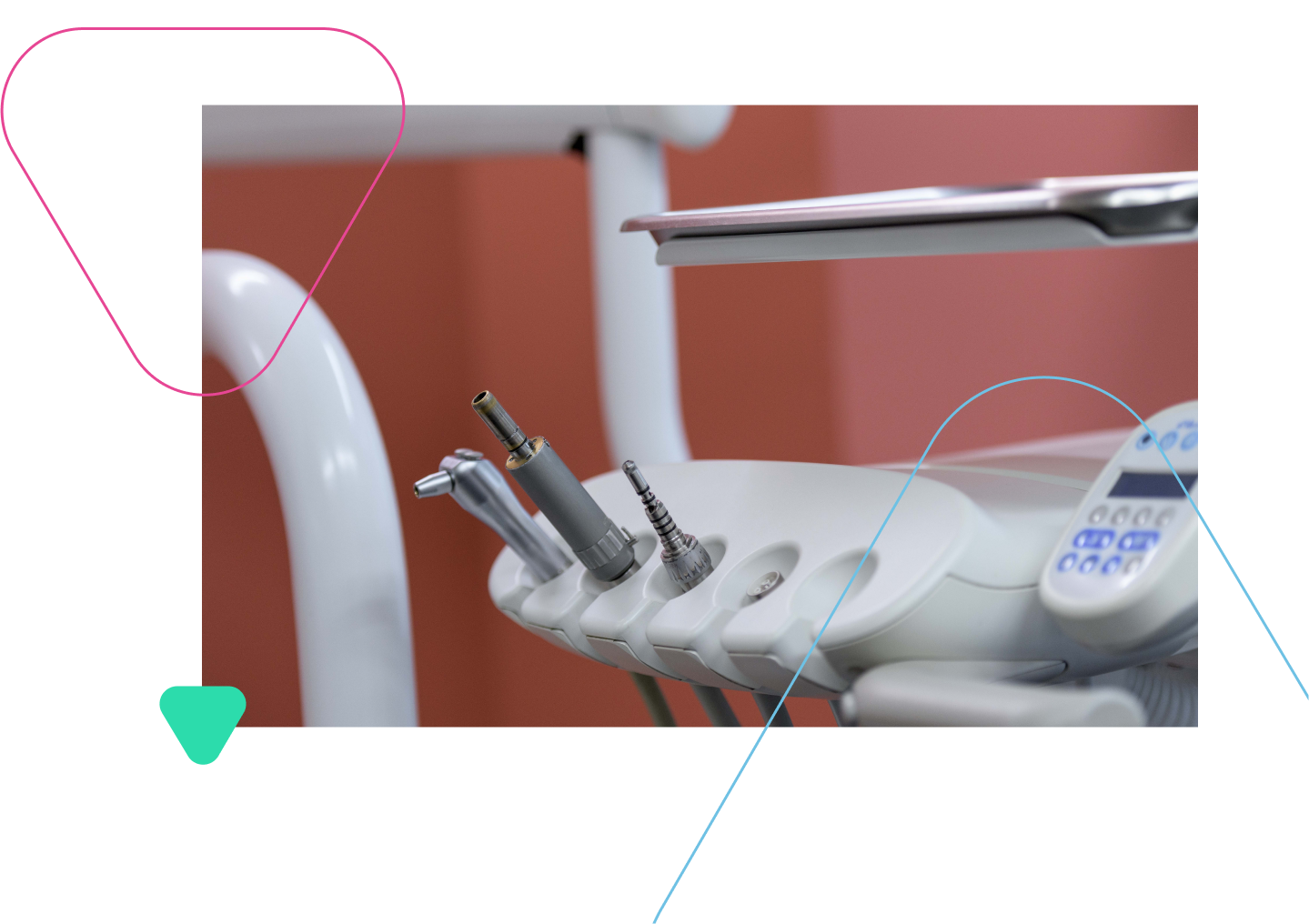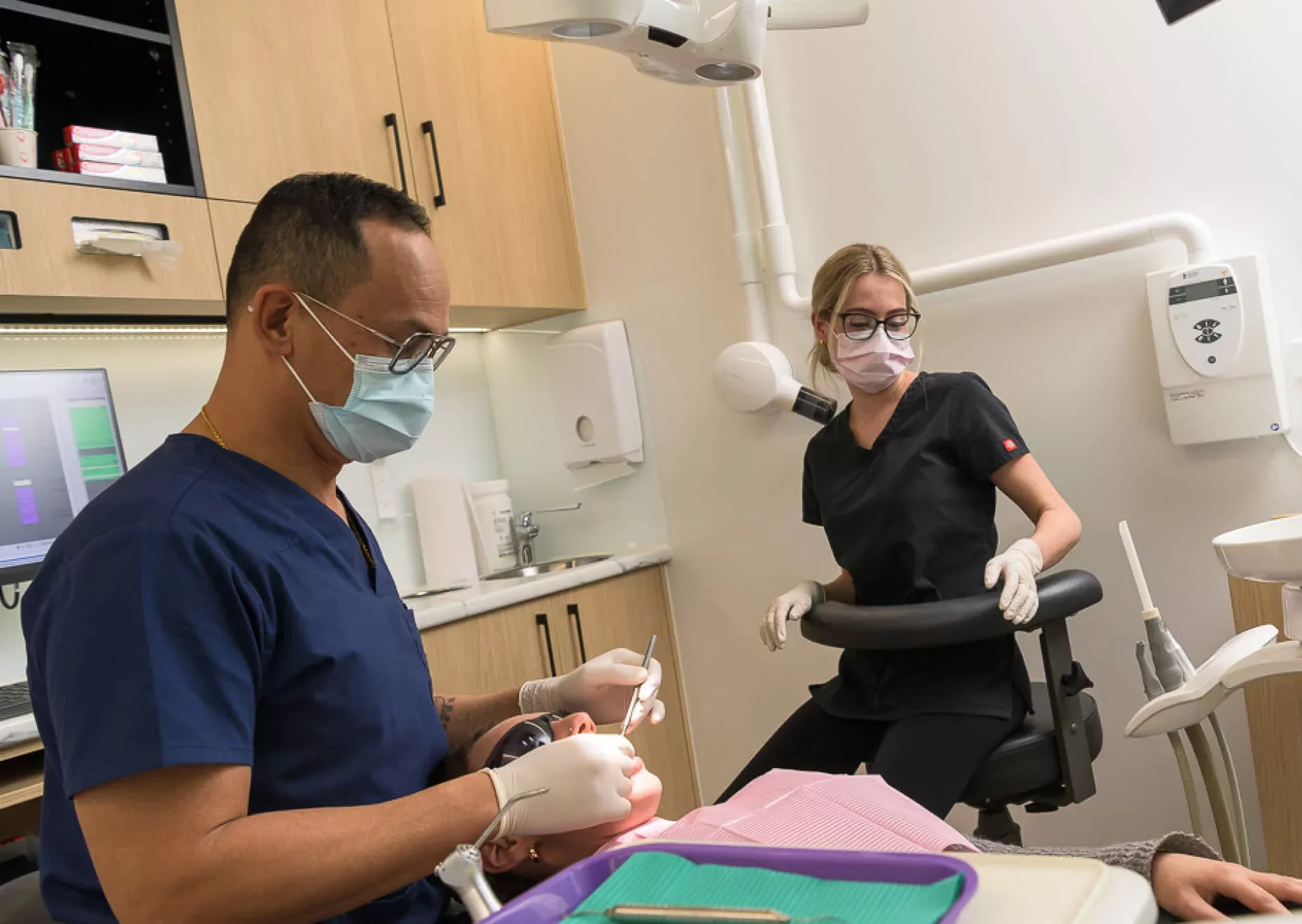Dental Bridges
Do you have missing teeth? At Gentle Dental, we can bridge the gap in your smile with a dental bridge. A dental bridge can enhance your smile and help you gain back your confidence after tooth loss.

What is a Dental Bridge?
Bridges are used to replace a single tooth or multiple teeth that have been lost.
Bridges rely on existing tooth structures on either side of the missing teeth, which are prepared with a crown and fused to prosthetic teeth to ‘bridge’ the gap. Bridges are permanent solutions to dental problems, such as missing teeth, weakened tooth structure or large fillings. They improve the look of your smile and can make speaking, eating and chewing easier.

Common Types of Dental Bridges
A traditional bridge is the best option for a missing tooth that has two healthy teeth on either side. To create a traditional dental bridge, the dentist reshapes the healthy neighbouring teeth so that a dental crown can be placed over top.
These crowns are then bonded to a fake tooth that will fill the gap in your smile. Cantilever bridges use a single natural tooth as an anchor. These are typically used when there is no tooth on one side of the dental bridge or when there aren’t two healthy teeth to support a traditional dental bridge.
Implant Supported Bridges

If your neighbouring teeth are weak or damaged and can’t be used as abutment teeth, you may need a dental implant to provide support. Dental implants are surgically placed in the jawbone and fitted with a crown on top. After the placement of the implant, it can take several months before the bone and gums are fully healed. Once healed, the bridge can be screwed or cemented into place.
What You Need to Know
At your consultation, your dentist will examine your mouth and talk through what type of bridge is best for you. They will make sure your neighbouring teeth are healthy, free of decay and strong enough to support a dental bridge.
Traditional dental bridges are completed in two visits. At your first appointment, your dentist will prepare and install your crowns and a temporary bridge while the permanent bridge is made. During the second appointment your dentist will attach the permanent bridge to your crowns.

What to Expect at Your Bridge Appointment

01
30-minute consultation to confirm if a bridge is right for you
02
Bridges are fitted over two appointments, several weeks apart
03
Guidance on how to care for your tooth following treatment
04
Natural-looking tooth that restores function to your mouth
05
Improved appearance and confidence post-treatment
Frequently Asked Questions
What are the advantages of getting a dental bridge?
Dental bridges are a permanent solution for tooth loss. Dental bridges look just like real teeth and are a great way to gain confidence if you feel self-conscious about your tooth gap. Filling the gap between your teeth also helps your neighbouring teeth to stay in place. A bridge provides support to your adjacent teeth, can improve your bite and make eating and chewing feel more natural and comfortable.
Are there alternatives to getting a dental bridge?
There are alternatives to dental bridges. A dental implant can be used to fill the gap. Partial dentures are another option. The downside to having dentures is that they need to be removed to be cleaned. As dental bridges are fixed into your mouth, they are a permanent solution for a missing tooth.
How do I care for my dental bridge?
You can clean your dental bridge by brushing twice a day and flossing underneath the pontic (fake tooth). Taking good care of your natural teeth is crucial for the success of your bridge long-term.

